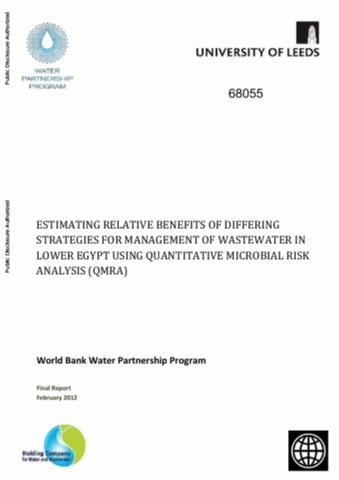The World Bank is a vital source of financial and technical assistance to developing countries around the world. We are not a bank in the ordinary sense but a unique partnership to reduce poverty and support development. The World Bank Group has two ambitious goals: End extreme poverty within a generation and boost shared prosperity.
- To end extreme poverty, the Bank's goal is to decrease the percentage of people living on less than $1.25 a day to no more than 3% by 2030.
- To promote shared prosperity, the goal is to promote income growth of the bottom 40% of the population in each country.
The World Bank Group comprises five institutions managed by their member countries.
The World Bank Group and Land: Working to protect the rights of existing land users and to help secure benefits for smallholder farmers
The World Bank (IBRD and IDA) interacts primarily with governments to increase agricultural productivity, strengthen land tenure policies and improve land governance. More than 90% of the World Bank’s agriculture portfolio focuses on the productivity and access to markets by small holder farmers. Ten percent of our projects focus on the governance of land tenure.
Similarly, investments by the International Finance Corporation (IFC), the World Bank Group’s private sector arm, including those in larger scale enterprises, overwhelmingly support smallholder farmers through improved access to finance, inputs and markets, and as direct suppliers. IFC invests in environmentally and socially sustainable private enterprises in all parts of the value chain (inputs such as irrigation and fertilizers, primary production, processing, transport and storage, traders, and risk management facilities including weather/crop insurance, warehouse financing, etc
For more information, visit the World Bank Group and land and food security (https://www.worldbank.org/en/topic/agriculture/brief/land-and-food-security1
Resources
Displaying 4506 - 4510 of 4906The Afghanistan Investment Climate in 2008 : Growth Despite Poor Governance, Weak Factor Markets, and Lack of Innovation
This survey report will help the
government of Afghanistan think through its approach to
private sector development. Historically, there has been a
dearth of information and reliable statistics about
Afghanistan's economy. This report reviews the
constraints that firms currently operating in Afghanistan
face and provides a basis for possible policy
recommendations to address these constraints. It is hoped
The Performance of Bulgarian Food Markets during Reform
Food policy often depends on markets and
markets depend on institutions. But how good do institutions
have to be before reforms can be launched? Relying on well
timed surveys of agricultural prices and a joint study by
the Government of Bulgaria and the World Bank on
agricultural market institutions, this paper presents
evidence that performance in food markets improved following
significant policy reforms in Bulgaria, although public
The Challenge of Improving Water and Sanitation Services in Less Developed Countries
This paper argues that there are many challenges to designing and implementing water and sanitation interventions that actually deliver economic benefits to the households in developing countries. Perhaps most critical to successful water and sanitation investments is to discover and implement forms of service and payment mechanisms that will render the improvements worthwhile for those who must pay for them.
General Equilibrium Effects of Land Market Restrictions on Labor Market : Evidence from Wages in Sri Lanka
Taking advantage of a historical quasi-experiment in Sri Lanka, this paper provides evidence on the effects of land market restrictions on wages and its spatial pattern. The empirical specification is derived from a general equilibrium model that predicts that the adverse effects of land market restrictions on wages will be less in remote locations. For identification, the study exploits the effects of historical malaria prevalence on the incidence of land restrictions through its effects on "crown land".
Estimating Relative Benefits of Differing Strategies for Management of Wastewater in Lower Egypt Using Quantitative Microbial Risk Analysis
The report uses a theoretical model of a typical drainage basin, but the approach could be applied to many of the drainage basins managed by the holding company for water and wastewater in Egypt. This study set out to assess the relative health impacts of different wastewater management strategies on health in the Nile delta region using an approach similar to that used in the Ghana.







